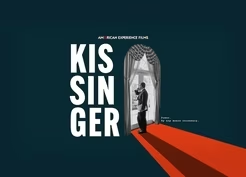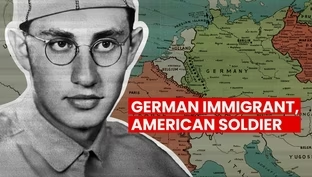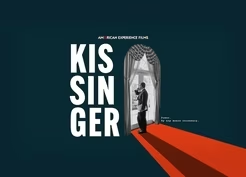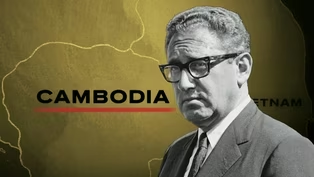
What It Was Like to Work for Henry Kissinger
Clip: Season 37 Episode 6 | 4m 45sVideo has Closed Captions
Hear what it was like working for Henry Kissinger from former staffers.
Hear what it was like working for Henry Kissinger from former staffers Winston Lord, Roger Morris, Sam Hoskinson, John Negroponte, and Anthony Lake.
Problems playing video? | Closed Captioning Feedback
Problems playing video? | Closed Captioning Feedback
Corporate sponsorship for American Experience is provided by Liberty Mutual Insurance and Carlisle Companies. Major funding by the Alfred P. Sloan Foundation.

What It Was Like to Work for Henry Kissinger
Clip: Season 37 Episode 6 | 4m 45sVideo has Closed Captions
Hear what it was like working for Henry Kissinger from former staffers Winston Lord, Roger Morris, Sam Hoskinson, John Negroponte, and Anthony Lake.
Problems playing video? | Closed Captioning Feedback
How to Watch American Experience
American Experience is available to stream on pbs.org and the free PBS App, available on iPhone, Apple TV, Android TV, Android smartphones, Amazon Fire TV, Amazon Fire Tablet, Roku, Samsung Smart TV, and Vizio.
Buy Now
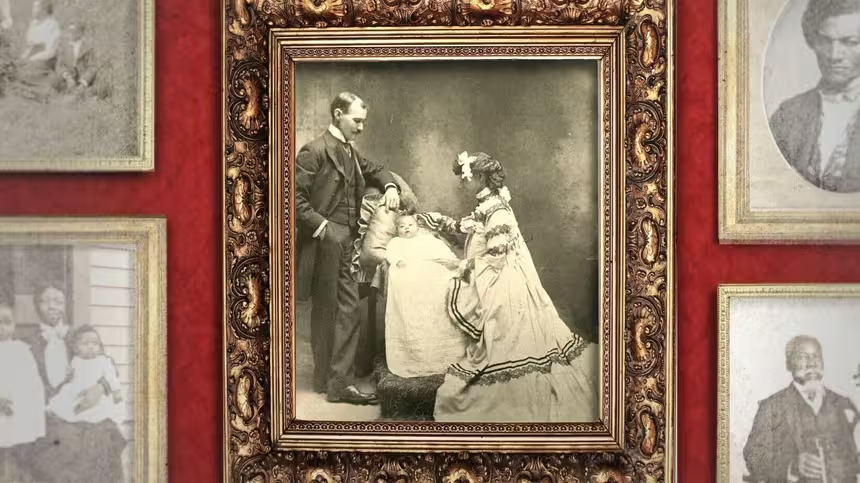
When is a photo an act of resistance?
For families that just decades earlier were torn apart by chattel slavery, being photographed together was proof of their resilience.Providing Support for PBS.org
Learn Moreabout PBS online sponsorshipWINSTON LORD: Kissinger he stretched my patience.
SAM HOSKINSON: He was a demanding perfectionist with his staff.
Nothing could ever be right.
LORD: He stretched my nerves.
HOSKINSON: There's also the joke that if Henry didn't yell at you, he didn't love you.
LORD: I would quit about once a week.
He was a friend, a mentor and a tormentor.
ANTHONY LAKE: Let me say first that I enjoyed working with him every day.
LORD: Kissinger chose the best people and didn't care about ideology.
He just wanted the most able, articulate people.
It was an extraordinary collection.
ROGER MORRIS: Kissinger was quite demanding intellectually of the people around him.
We worked murderous hours.
We were often seven in the morning till eight or nine at night.
And, it took a toll on families.
It took a toll on our physical stamina.
JOHN NEGROPONTE: The work is, at times fascinating, at times exhilarating.
People thought of themselves as an important group within the US government dealing with national security issues, and serving a very influential boss.
LORD: Kissinger made very clear, as he did throughout my experience with him, that he did not want yes men.
He wanted candid advice.
Disagreement, if necessary.
Argue your case, if you lose the battle, then faithfully carry out the policy.
LAKE: He had a very dry sense of humor, that I enjoyed, even though I lost every argument with him, he encouraged me to argue, to his credit, because not many bosses would do that.
MORRIS: We were graded.
We were told we had done a B-plus or maybe an A-minus if we were really lucky, but always, of course, you had to go back because the only real A was Henrys own rendition.
LAKE: I used to fly with him to Paris, for the secret negotiations.
We had a little private plane, and we would fly across to Paris and spend the night, have the meeting, and fly back that next night.
LORD: The geopolitical significance, historical significance, the James Bond secrecy aspect, all of this was a matter of great exhilaration and anticipation, to say the least.
MORTON HALPERIN: There was secrecy, subterfuge, and confusion, and you learned that Kissingers word could not be trusted.
Whatever he told you, you knew something else was going on.
He played off everybody against each other.
MORRIS: Kissinger played the inside game by indulging the the party of the moment so that if he if he needed to wiretap his own staff, he did so without without question, without remorse.
LAKE: In April of 1970, Kissinger called in me and Roger Morris and then three others, I believe.
At the meeting, Kissinger said that we are going to go into Cambodia.
And, what do you think?
And then we argued that this was bad strategically, and domestically, was going to be a firestorm of some sort.
MORRIS: I remember banging my fist on the desk to the point that some of the papers actually rose.
So, I said, “if there's one goddamn trooper across that line, I'm out of here.” It was the last straw of escalation.
We were working very hard, night and day, literally, on a peace settlement.
LAKE: I bore the brunt of the argument, and at the end of it, Kissinger said, I can still hear his voice, “well, Tony, I knew what you were going to say.” And I thought to myself, I can leave now.
And afterwards I said to Roger, “okay, this is it, I've had it,” and he agreed.
And so we wrote a joint letter to him, and handed it to Al Haig and said, “please give it to him on the day the invasion takes place.” Which he did and Kissinger was not pleased.
HOSKINSON: One crisis after another.
You know, it was a heady kind of atmosphere.
It was like, being at the epicenter of world power.
LORD: I've always described it as the agony and the ecstasy, the agony where we ran into troubles and had crises, but then the ecstasy of the breakthroughs, the dramatic events that I was involved in, what I think we achieved for American national interest made it all worthwhile.
For more, watch Kissinger on American Experience.
Video has Closed Captions
Preview: S37 Ep6 | 9m 3s | Watch a preview of Part One of Kissinger. (9m 3s)
How WWII Shaped Henry Kissinger's Identity
Video has Closed Captions
Clip: S37 Ep6 | 3m 41s | Kissinger escaped Nazi Germany and emigrated to the U.S., where he was drafted in the U.S. Army. (3m 41s)
Trailer | Kissinger | American Experience
Video has Closed Captions
Preview: S37 Ep6 | 2m 53s | The life of the brilliant foreign policy powerbroker who shaped the world in which we live. (2m 53s)
Why Did Kissinger Wage A Secret War On Cambodia?
Video has Closed Captions
Clip: S37 Ep6 | 5m | Kissinger and Nixon authorized the secret bombing of Cambodia in 1969. (5m)
Providing Support for PBS.org
Learn Moreabout PBS online sponsorshipSupport for PBS provided by:
Corporate sponsorship for American Experience is provided by Liberty Mutual Insurance and Carlisle Companies. Major funding by the Alfred P. Sloan Foundation.


